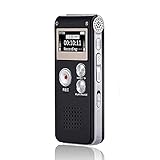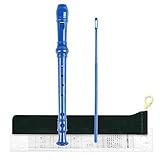
When exploring the world of music, it is always fascinating to delve into the different names and terminologies used to describe instruments across various languages. Today, we are going to explore the Spanish translation of a beloved musical instrument, known for its soothing melodies and versatile nature.
Imagine a small, handheld device that emits melodic tunes with each press of a button or a careful touch of its delicate keys. This instrument has a rich history and holds a special place in the hearts of musicians and music enthusiasts alike. In the Spanish language, it is referred to as something more than just a mere object; it carries a sense of artistry and significance.
Introducing the “flauta dulce”!
Yes, the synonym for the instrument we are discussing today is the “flauta dulce.” The term “flauta” in Spanish translates to “flute,” evoking images of elegance and grace. However, the addition of the word “dulce” adds depth to its meaning, giving the instrument a unique poetic touch. The term “dulce” translates to “sweet,” beautifully portraying the harmonious and melodic qualities that this instrument possesses.
Embark on a journey to uncover the nuances and wonders of the “flauta dulce” as we dive into its history, playing techniques, and the significant role it plays in Spanish music.
A Detailed Guide on Expressing the Term “Recorder” in Spanish: Unlocking the Linguistic Puzzle
Embarking on the journey to master a foreign language involves conquering various challenges, including understanding and utilizing the appropriate terminology. In this comprehensive guide, we explore the numerous ways to convey the term “recorder” in the Spanish language, shedding light on the linguistic intricacies and providing you with a diverse range of synonyms and expressions to enhance your communication skills.
1. The Musical Instrument:
When referring to the musical instrument also known as a “recorder,” the Spanish language offers several options to choose from. One common term is “flauta dulce,” where “flauta” translates to “flute” and “dulce” means “sweet.” This moniker emphasizes the mellifluous sounds produced by this woodwind instrument, capturing its essence harmoniously.
2. The Recording Device:
In the realm of technology, where “recorder” is associated with electronic recording devices, Spanish provides an array of phrases to accurately express this concept. One frequently used expression is “grabadora,” encompassing the idea of capturing and storing sounds or images for later playback. Additionally, “dispositivo de grabación” refers to the device used for recording, resonating with its functional purpose in a more formal sense.
By delving into the rich linguistic landscape of the Spanish language, this guide equips you with an extensive vocabulary to effectively convey the term “recorder” in various contexts. Building your repertoire of synonyms and expressions ensures greater precision and fluency in your communication, enabling you to navigate the intricacies of the Spanish language with confidence.
Exploring the Translation of “Recorder” in Spanish
When it comes to finding the equivalent word for “recorder” in Spanish, we enter into the fascinating realm of language translation. It is a journey that delves into the nuances and intricacies of both English and Spanish, seeking to capture the essence of the word in a way that resonates with the Spanish-speaking world.
One possible translation for “recorder” in Spanish is “grabadora.” This word reflects the concept of recording audio or sound, which aligns with the functionality of a traditional recorder. “Grabadora” can also refer to a device used for recording, such as a tape recorder or a digital recorder.
Another alternative translation is “registrador.” This word carries a broader meaning, encompassing the act of recording not just audio, but any form of data or information. It can be used to denote devices used for registering or recording various types of data, such as a logging device or a registration system.
An additional term that can be used to refer to a recorder in Spanish is “reproductor.” Although it primarily translates to “player” or “reproducer,” it can also be used to describe a device that has recording capabilities, making it multifunctional.
It is important to note that language is ever-evolving and varies across regions. Different Spanish-speaking countries may have their own preferred terms for a recorder, influenced by local dialects or cultural contexts. Therefore, while “grabadora,” “registrador,” and “reproductor” represent commonly used translations, it is worth considering regional variations and understanding the specific context in which the word is to be used.
In conclusion, the translation of “recorder” in Spanish can be explored through various terms such as “grabadora,” “registrador,” and “reproductor.” Each term captures a different aspect of the concept of recording and can be contextualized based on specific needs or regional preferences.
Understanding the Different Meanings and Contexts of “Recorder” in Spanish
Exploring the diverse meanings and contexts surrounding the term “recorder” in the Spanish language allows us to delve into a rich linguistic landscape. Without employing specific definitions, this section aims to provide an understanding of the various interpretations and applications of the word. Let us embark on a journey through the multifaceted realm of the Spanish language.
In certain contexts, “recorder” in Spanish may refer to a musical instrument, resembling a flute, that is used to produce melodic tunes. By utilizing air blown into the instrument through the mouthpiece, musicians can create enchanting melodies and capture the essence of music. This interpretation highlights the artistic and expressive nature of the term.
Expanding beyond the realm of music, “recorder” can also be associated with the act of preserving information or capturing moments. In this sense, it may refer to a device utilized for audio or video recording, enabling the documentation of important events, meetings, or personal memories. Such a definition emphasizes the practical and technological aspect of the term.
Moreover, “recorder” can also be linked to the legal system in Spanish-speaking countries. In this context, it pertains to an official appointed by the court to document and transcribe proceedings during a trial or legal hearing. This interpretation underscores the importance of accurate record-keeping and the role of procedural transparency within the justice system.
It is crucial to note that the specific meaning of “recorder” in Spanish can vary depending on the regional dialect or specific cultural context. Thus, comprehending these diverse interpretations grants us a deeper understanding of the multifaceted nature of language and its dynamic relationship with different cultures.
In conclusion, the term “recorder” in Spanish encompasses a range of meanings and contexts, including musical instruments, audio or video capturing devices, and individuals involved in legal documentation. This section has provided a glimpse into the diverse applications of the term, highlighting the artistic, practical, and legal aspects in different linguistic and cultural contexts.
Practical Usage and Common Phrases: Incorporating “Recorder” in Spanish Conversations
Mastering a foreign language involves not only learning vocabulary and grammar rules but also incorporating the language into daily conversations. In this article, we will explore practical ways to incorporate the word “recorder” into Spanish conversations, allowing you to express yourself fluently and naturally.
One common scenario where you might want to use the word “recorder” is when discussing musical instruments. Instead of explicitly using the word “recorder,” you can employ synonyms such as “flauta dulce” or “flauta de pico,” which both refer to the same instrument. For example, you can say, “Me gusta tocar la flauta dulce” (I enjoy playing the recorder) or “Estoy aprendiendo a tocar la flauta de pico” (I am learning to play the recorder).
Another context where the word “recorder” can be integrated is in conversations about audio or video recording devices. Instead of using the direct translation, you can use words like “grabadora” or “dispositivo de grabación.” For instance, when talking about recording an important lecture, you can say, “Necesito una grabadora para la conferencia” (I need a recorder for the lecture) or “Voy a utilizar un dispositivo de grabación para la entrevista” (I am going to use a recording device for the interview).
Furthermore, “recorder” can also be utilized in discussions related to documenting information or keeping records. In these situations, you can substitute “recorder” with words like “registrador” or “archivador.” For example, when describing a job involving record-keeping, you can say, “Mi trabajo es ser registrador de datos” (My job is to be a data recorder) or “Necesito comprar un archivador para organizar los documentos” (I need to buy a file cabinet to organize the records).
By employing these alternative phrases and synonyms for the word “recorder,” you can effectively communicate in Spanish and diversify your vocabulary. Remember to practice using these phrases in conversations to strengthen your language skills and enhance your fluency.
FAQ
What is the Spanish word for recorder?
The Spanish word for recorder is “grabadora”.
How do I say recorder in Spanish?
To say recorder in Spanish, you would say “grabadora”.
Could you please tell me the translation of recorder in Spanish?
Yes, the translation of recorder in Spanish is “grabadora”.
What is the equivalent term for recorder in the Spanish language?
The equivalent term for recorder in Spanish is “grabadora”.










